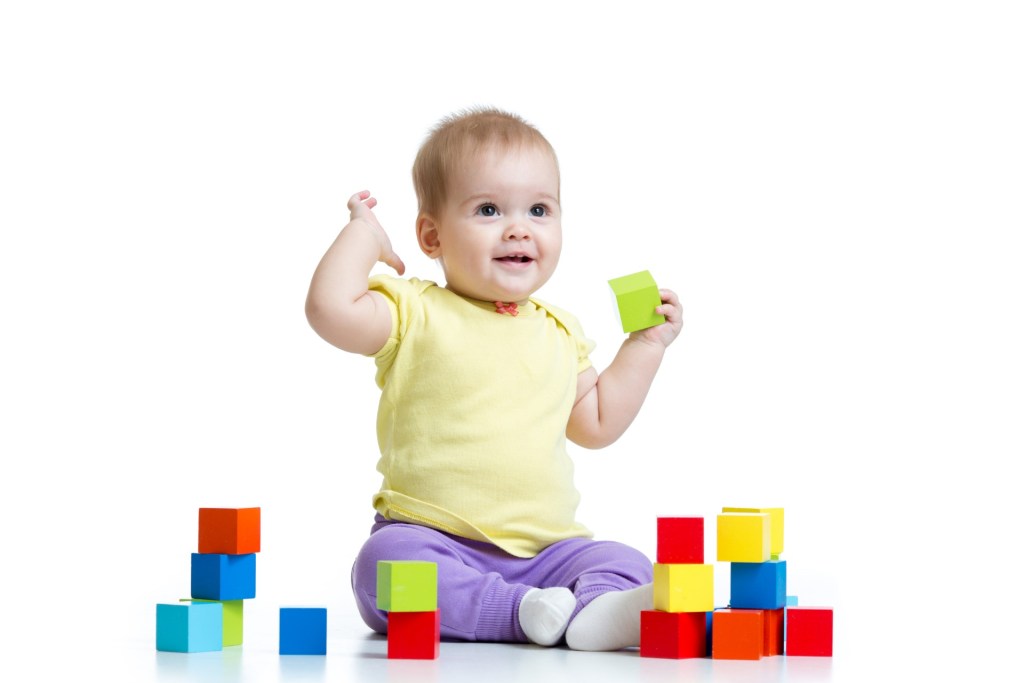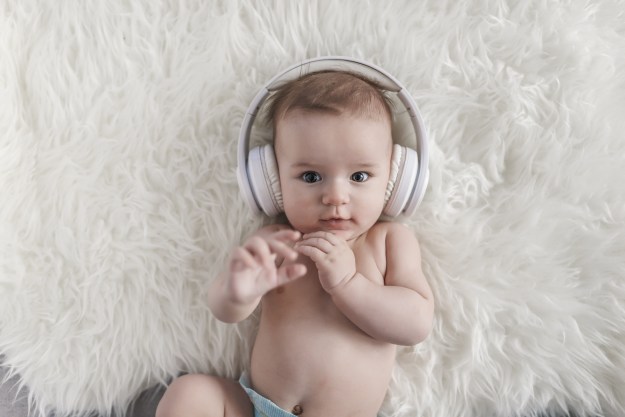When you’re a new parent, wondering when can babies nest cups or stack blocks is the last thing on your radar. But the moment someone gifts your child their first set of blocks, you become obsessed with baby learning and when they should be able to stack blocks. While stacking blocks are an important developmental milestone for babies, it’s also one of those things that evolves with time and practice. Sitting down to play blocks with your little one is an open-ended game that teaches children physics, resilience, and fun. Here are some general guidelines so you know how to measure your child’s development by blocks and avoid stressing out or setting unrealistic expectations for your baby.

6 months
At this age, your baby is still too young to play with blocks. Any attempt to teach block stacking would be premature or could end up in accidents. It’s perfectly normal for your 6-month-old to gnaw on blocks or simply hold one.
12 months
This is the stage of banging items against each other and blocks aren’t the exception. If you offer your child blocks, don’t expect them to build anything. But keep in mind that knocking things down is a favorite activity of 1-year-olds. More likely than not, they’ll be happy to destroy any block tower you build. If your little one can’t get enough of knocking down a stack of blocks, rest assured that they’re right on schedule.
18 months
When can babies nest cups? Here you are. By a year and a half, stacking is the name of the game. After all, your little one is now officially a toddler and proud of it. If you haven’t done so already, this is a great time to introduce baby blocks. At this point, most kiddos are able to stack two or three blocks on top of each other with ease.
2 years
Don’t be surprised if your baby’s block buildings start to get taller by age 2. With improved coordination, your child shows better stacking skills and may be able to balance up to seven blocks on top of each other. This is also the beginning of sorting for many young children. If they’re now stacking masters, go ahead and challenge your budding genius to sort their blocks by color or separate them in groups.
3 years
Free play takes a life of its own by age 3. At this point, blocks are much more than meets the adult eye. Your child’s imagination is flourishing and they’ll start to build tunnels, bridges, or forts with just a few blocks. This is the perfect moment to introduce your toddler to teamwork. If the two of you work together, it’s easier to build tall towers and solve construction problems.
The benefits of stacking blocks

Blocks are deceivingly simple. Where most adults see a square shape, children see a world of possibilities. These exploratory toys are only the beginning of more complex tasks that your child will face later on in life. These are a few of the benefits children get from stacking blocks:
- Hand-eye coordination
- Pincer grasp
- Fine motor skills
- Cognitive development
The evolution of block play
There’s no need to stop playing with blocks once your child reaches age 3. In fact, this is when the fun is just starting! As their name implies, these cubes are the building blocks of math, science, and speech. If you’re looking for ways to take block play to the next level, here are some ideas to turn this classic game into imaginative play:
Give your child options: As they get older, it’s normal if stacking blocks gets old. But if you incorporate different shapes and build out a whole town, the games take on a new level. And when vertical construction gets old, line the blocks up to see how far they can go.
Speed stack: As your child’s movements become more controlled, they’ll be able to stack more blocks in a shorter amount of time. Without turning it into a stressful situation, see how quickly your little one can stack blocks and encourage them to do it even faster.
Nesting cups: When blocks are no longer a challenge, give nesting cups a shot. These hollow shapes bring a whole new element to the game once your child understands that they can be stored inside each other. Figuring out sizes and placing them in order will fascinate your baby.
There’s a reason why classic toys never go out of style and building blocks are no exception. These essentials of infant playtime are more important to your child’s development than you might think. Their creative and STEM potential are important to your little one’s physical and cognitive growth. While they’re no scientific measurement of progress, these play starters are a fun way to teach your child useful skills and complex tasks they’ll use throughout their life.
Editors' Recommendations
- Your teen got a job interview. Now, what to wear?
- Baby registry must-haves: This is everything that should be on your list
- How much water should a 1-year-old drink? What you need to know
- The feeling words all parents should teach their little ones
- When do babies sleep through the night (and what the answer means for your child)?


